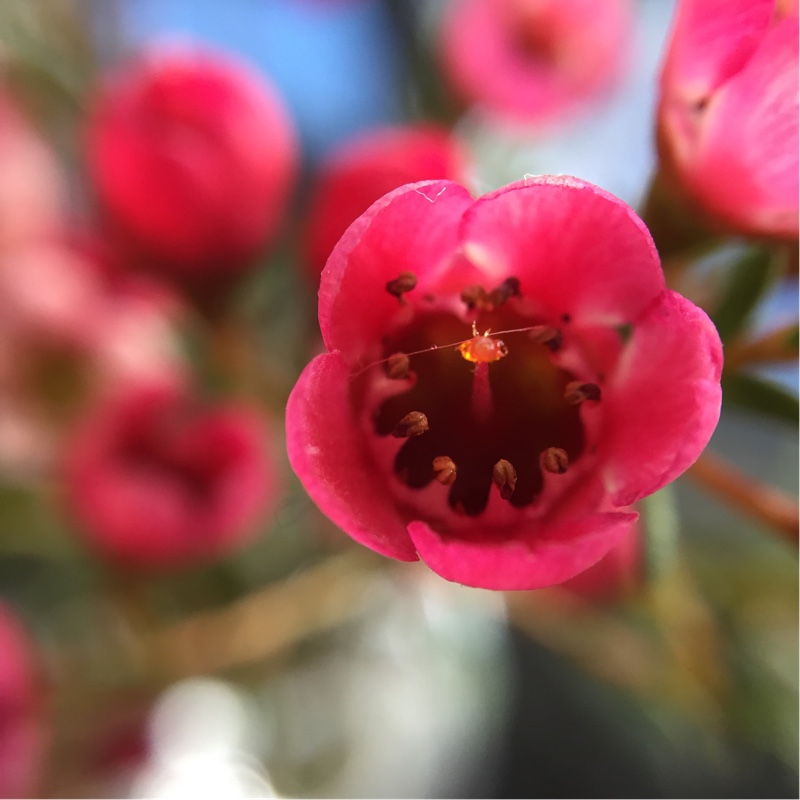
Chamelaucium uncinatum
Geraldton Waxflower
Geraldton Waxflower is a native of the Shark Bay region of western Australia. It is an evergreen shrub with narrow needle-like leaves on thin stems, and clusters of honey-scented 5 petalled flowers from late Winter into Spring
Contributed by @mojo
-
Full sun to partial shade
-
Occasional watering
-
A little frost hardy: 32F (0°C)
-
Light and free draining
Common name
Geraldton Waxflower
Latin name
Chamelaucium uncinatum
type
Evergreen Shrub
family
Myrtaceae
ph
5.5 - 7.3 Acid - Neutral
Plant & bloom calendar
-
Best time to plant
-
When the plant will bloom
full grown dimensions
 2.00 M
2.00 M
2.00 M
2.00 M
Chamelaucium uncinatum
Geraldton Waxflower is a native of the Shark Bay region of western Australia. It is an evergreen shrub with narrow needle-like leaves on thin stems, and clusters of honey-scented 5 petalled flowers from late Winter into Spring
Flowering
From Late Winter TO Late Spring
Most waxflowers bear their 5-petalled, honey-scented flowers from late Winter through Spring
Planting
From Early Spring TO Mid Spring
Plant in very free-draining light neutral to acidic soil that has had plenty of organic material added to it, to a depth of 8"-10". Plant in a sunny spot, sheltered from wind.
Propagating by cuttings
From Mid Summer TO Late Summer
Take root stem cuttings in the Summer, by taking short cuttings of mature new growth, stripping or pruning off the lower leaves, and putting into moist potting soil or well-drained garden soil. Move to a bright area, not indirect sunlight, and with high humidity. Keep cuttings moist for 4-6 weeks, until well rooted, then transplant into individual containers Rooting hormones increase the likelihood of rooting, but are usually unnecessary for most plants.
















